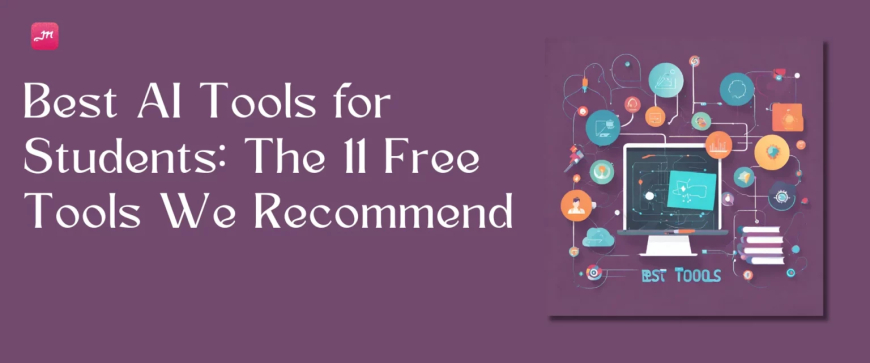History of AI in Education & Productivity
Discover the best AI tools in 2025, including ChatGPT and smart apps, to boost learning, creativity, and productivity like never before.

Introduction
Artificial Intelligence (AI) has become an essential part of modern education, transforming the way students learn, research, and complete assignments. With tools like ChatGPT and other AI-powered applications, students now have access to instant answers, creative support, and study assistance. In 2025, AI tools are more advanced, personalized, and widely available, making learning more interactive and efficient.
History of AI in Education
AI in education began with simple computer-based learning programs in the late 20th century. Over time, advancements in machine learning, natural language processing, and big data allowed AI to evolve into intelligent virtual assistants, adaptive learning platforms, and research tools. Today, AI like ChatGPT, Google Bard, and Grammarly are used daily by millions of students worldwide.
Importance & Significance
AI tools help students save time, improve accuracy, and gain personalized feedback. They can explain complex topics, assist in writing, generate study materials, and provide career guidance. The significance lies in making education more accessible and helping learners from all backgrounds achieve their goals efficiently.
Key AI Tools in 2025
-
ChatGPT – For research, writing help, and explanations.
-
Grammarly – For grammar correction and writing improvement.
-
Notion AI – For note-taking, organization, and planning.
-
QuillBot – For paraphrasing and summarizing content.
-
Perplexity AI – For real-time research and fact-checking.
Advantages of AI Tools for Students
-
Saves time in research and writing
-
Provides accurate and quick answers
-
Improves grammar and communication skills
-
Offers personalized learning support
-
Enhances creativity and idea generation
Disadvantages of AI Tools
-
Over-reliance may reduce independent thinking
-
Risk of misinformation if not verified
-
Can affect creativity if used for all tasks
-
Requires internet access and digital literacy
AI Tools as Mobile Apps
Most AI tools are now available as mobile apps, allowing students to study anywhere. ChatGPT, Grammarly, and Notion AI have user-friendly apps compatible with Android and iOS, making learning seamless.
Final Thoughts & Conclusion
AI tools in 2025 are reshaping education by making knowledge more accessible, personalized, and efficient. While they offer immense benefits, students should use them wisely—balancing AI assistance with critical thinking and creativity. The future of learning will undoubtedly be powered by AI, but the best results will come when human intelligence works alongside artificial intelligence.

 Ellofacts
Ellofacts 





